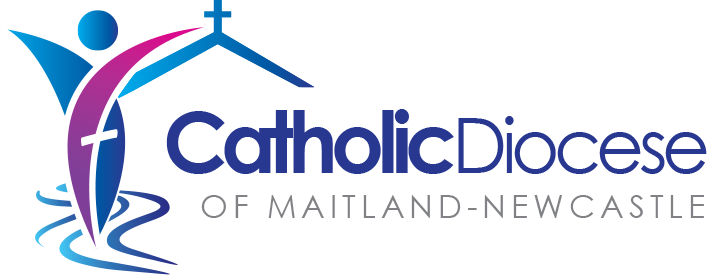Parish List
- Home
- About
- Church & Mission
- Support Us
- Catholic Life
- National Plenary Council & Diocesan Synod
- Children's Ministries
- Mission and Outreach
- Diocesan Protection and Safety Council
- Change Loss and Grief
- Ecumenism
- Perpetual Day of Remembrance
- LGBTIQ Forum
- Visiting Clergy - Citizens/Residents of Australia
- Visiting Clergy - International Visiting Australia
- Agencies
- News & Events
- People
- Places
- Mass Times App
- Jubilee
Bishop Michael Malone
Bishop Michael John Malone was ordained Coadjutor Bishop of the Catholic Diocese of Maitland (as it was formerly known) by the Most Reverend Leo Clarke, Bishop of Maitland-Newcastle, on 15 February, 1995 in the Sacred Heart Cathedral, Hamilton.
In June 1995 the diocese moved its base from Maitland to Newcastle and officially became the Diocese of Maitland-Newcastle. On 3 November, 1995, Bishop Leo Clarke announced his retirement and, as Coadjutor Bishop, Michael Malone automatically became Bishop of Maitland-Newcastle.
Bishop Michael, as he likes to be known, was the seventh bishop of the diocese, which at the time comprised approximately 140,000 Catholics. A large urban and rural area, the diocese extends from Lake Macquarie to Taree and as far inland as Merriwa and Murrurundi.
Born in Sydney, NSW, on 23 October 1939, Michael Malone is the fifth of seven children born to John and Marie Malone.
He grew up in Willoughby and was educated at St. Thomas' Primary School, Willoughby and then St. Pius X College, Chatswood. Bishop Michael's seminary studies were at St. Columba's College, Springwood and St. Patrick's College, Manly. He was ordained a priest of the Sydney Archdiocese by Cardinal Norman Gilroy (Archbishop of Sydney) on 18 July, 1964 at St Mary's Cathedral, Sydney.
Bishop Michael has served as a priest in a number of parishes in the Archdiocese of Sydney and the Parramatta and Broken Bay Dioceses. He has also spent a substantial amount of time as a chaplain to hospitals in the Sydney metropolitan area. He describes this experience as being most beneficial for him in his personal and ministerial formation.
After parish work in Annandale, Seven Hills and Cabramatta, he was appointed Catholic Chaplain to Concord Repatriation Hospital. Bishop Michael then went on to other parishes and hospitals at Darlinghurst and Camperdown. Parish appointments to Pagewood and Blacktown followed. His last parish appointment (before becoming bishop) was at St. Patrick's Parish, Gosford, where he was resident for seven years.
During his appointment, Bishop Michael was a member of the Australian Catholic Bishops' Conference Committee for Clergy and Religious and for Health Care. He also represented the NSW Bishops' on their Social Welfare and Healthcare Committee and member of the Stewardship Board of Catholic Health Australia. He was Chairperson of the Hunter Heads of Christian Churches group.
Bishop Michael exhibited a mix of 'old' and 'new' church characteristics. While possessing a rather progressive ecclesiology, he is faithful to the traditions of the Catholic Church. Bishop Michael acknowledges Popes John XXIII and Paul VI as two significant ecclesiastical mentors.
Bishop Michael is passionate about the church being involved in the world. He believes it must be relevant, inclusive, compassionate and just in its approach to people and the issues they face. He is strongly committed to working collaboratively with the priests, lay people and religious women and men of his diocese. He places great importance on the church "as leaven in the world" - in dialogue with its community - so that all groups can better promote and build the reign of justice, peace, love and reconciliation.
This is evidenced through his participation in the October 1998 launch of Two Bishops Trust. This historic and exciting venture between the Catholic and Anglican Churches, their respective welfare agencies and other community organisations, aimed to establish a creative solution to the increasing problem of unemployment in the Newcastle and Hunter regions.
Bishop Michael's episcopacy is characterised by his pastoral, 'down-to-earth' qualities. The scriptural image of 'shepherd' is very important for him as bishop and leader. He believes that the bishop's role is to be a responsible leader, one who is genuinely willing to serve the needs of the people in the community.
